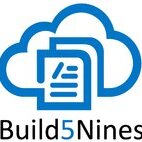Search the Community
Showing results for tags 'tags'.
-
Modern teams need a more robust data integration solution than GTM. Here are 4 of the reasons GTM and data engineers don’t get along plus a better solution.View the full article
-
- data engineering
- google tag manager
-
(and 2 more)
Tagged with:
-
In Microsoft Azure, you can assign Tags to Azure Resources to add additional metadata to them. This can be used to enhance the reporting of your Azure Resources so you can determine which Business Unit or Department in your organization is responsible for paying for the resources. Tags are also used to add any other […] The article Terraform: Azure Resource Tags Tips appeared first on Build5Nines. View the full article
-
Amazon OpenSearch Service now supports tag-based authorization for HTTP methods, making it easier for you to manage access control for data read and write operations. You can use Identity policies in AWS Identity and Access Management (IAM) to define permissions for read and write HTTP methods, allowing coarse-grained access control of data on your Amazon OpenSearch Service domains. View the full article
-
- opensearch
- tags
-
(and 1 more)
Tagged with:
-
AWS Cost Allocation Tags now offers APIs that you can use to activate and deactivate your Cost Allocation Tags. After you activate a Cost Allocation Tag, it will appear in your cost management products, such as AWS Cost Explorer and AWS Cost and Usage Report. You can use Cost Allocation Tags to filter, categorize, and track your AWS cost and usage information. Previously, you had to activate and deactivate Cost Allocation Tag on the Cost Allocation Tag page in the AWS Billing Console. With this launch, you can use the ListCostAllocationTags API to list all Tags and use the UpdateCostAllocationTagsStatus API to activate and deactivate Cost Allocation Tags. View the full article
-
Docker allows you to build, ship, and run applications in the containerized environment. In simple terms, you can run multiple applications on different machines or ports and make them communicate with each other. As you are iterating on your application, you will need to push new Docker images to the Docker registry. A natural question arises is how to version these images. This is where Docker tags come into the picture. Docker tags consist of three parts: the first part is namespace, the second part is image name, and the last part is where you specify the version. By default, the Docker image name is made from slash-separated name components. Docker tags allow you to tag the images for clarification. In simple words, Docker tags include very useful information, such as OS version. This plays a very important role in the development lifecycle, as developers use these tags to differentiate the build version... View the full article
-
Forum Statistics
42.4k
Total Topics42.2k
Total Posts
.png.6dd3056f38e93712a18d153891e8e0fc.png.1dbd1e5f05de09e66333e631e3342b83.png.933f4dc78ef5a5d2971934bd41ead8a1.png)



